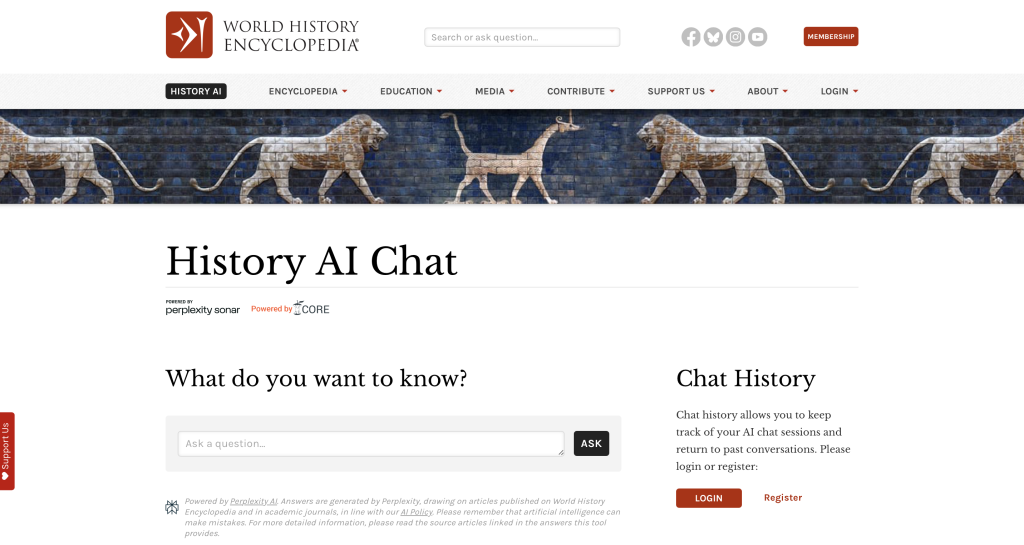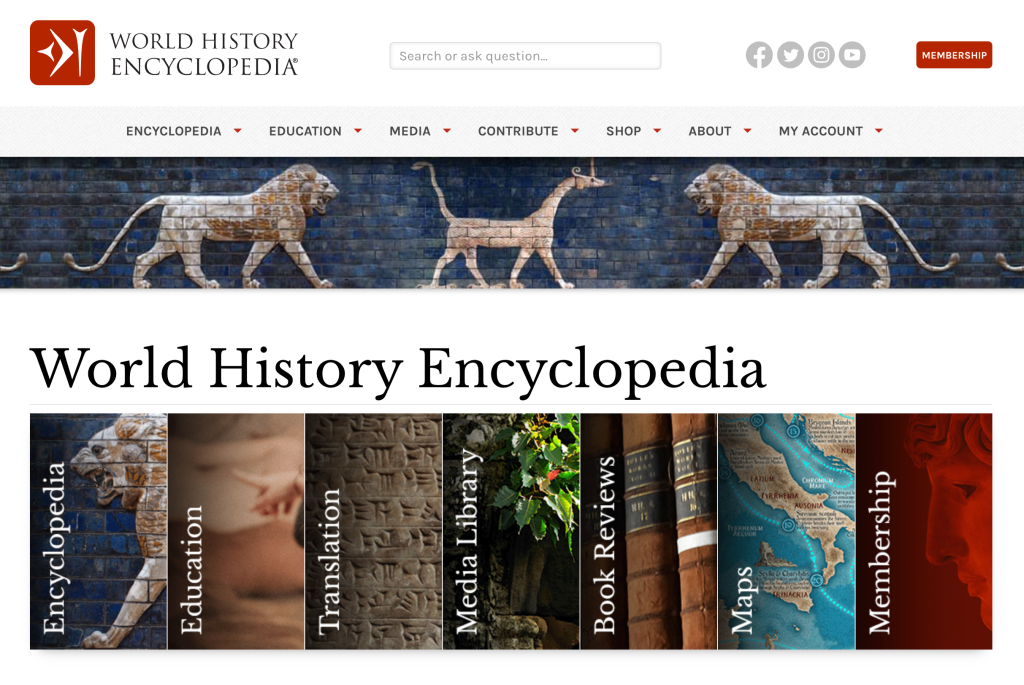Every research article, thesis, and working paper, accessible to anyone, anywhere. That’s the reality CORE has been building for 15 years, making knowledge discoverable and usable for students, educators, researchers, and curious minds across the globe.
“It’s extraordinary to witness how CORE (COnnecting REpositories) has become a resource that can be embedded into new innovative applications that can benefit from access to reliable research information,” says Petr Knoth, Head of CORE.
Today, we’re proud to see that mission in action on platforms like World History Encyclopedia, used by thousands of schools globally. Their non-profit website is now augmented by CORE, alongside generative AI technology, helping users explore history seamlessly and with links to evidence in CORE. While generative AI provides advanced search capabilities, it’s CORE’s open, not-for-profit infrastructure that grounds the user experience in World History’s Encyclopedia’s AI Chat into scientific evidence. This all free from paywalls.

“At a time when misinformation spreads freely on the internet and the truth is increasingly hidden behind paywalls, open access to academic information is more important than ever,” says Jan van der Crabben, Founder & CEO of World History Encyclopedia.
World History Encyclopedia’s AI Chat provides short and easy-to-understand answers based on a blend of WHE’s carefully reviewed articles and CORE’s in-depth database of academic papers. This makes academic research easily accessible and comprehensible to millions of students around the world.

CORE continues to champion public-good, open research. From thousands of universities and repositories to learners on the other side of the world, our work ensures that even works without DOIs remain accessible, reflecting our commitment to comprehensiveness and inclusivity.
This is what open access looks like in practice: creating opportunities for learning, innovation, and discovery that everyone can tap into. As we look to the next 15 years, CORE will continue to grow, index, and empower knowledge platforms everywhere.
Here’s to powering open-access research and discovery, together.
